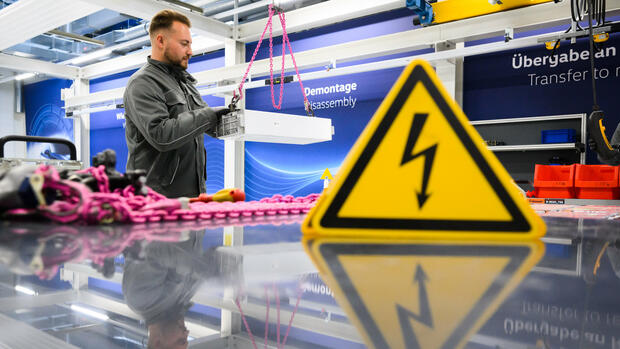EU demand for lithium-ion batteries, fuel cells and electrolyzers needed in hydrogen technology will increase sharply in the coming years.
(Photo: dpa)
Madrid The Spanish EU Council Presidency is warning the international community against dependence on China for lithium-ion batteries and fuel cells. Without countermeasures, the EU could become just as dependent on China by 2030 as it was for energy supplies from Russia before the war in Ukraine, according to a strategy paper prepared for the EU heads of state and government and seen by the Reuters news agency is present. It is intended to form the basis for discussions about Europe’s economic security at the EU summit in Granada, Spain, at the beginning of October.
The paper says Europe will need energy storage to meet its goal of zero greenhouse gases by 2050 due to intermittent wind and solar power. This will increase EU demand for lithium-ion batteries, fuel cells and electrolyzers needed in hydrogen technology by 10 to 30 times in the coming years.
“Without the implementation of effective measures, by 2030 the European energy ecosystem could end up in a dependency on China that is different but similar in severity to that of Russia before its invasion of Ukraine,” it said. The EU has a strong position in the production of electrolyzers, but is heavily dependent on China for fuel cells and LI-ion batteries needed for electric cars.
Lithium-ion batteries and fuel cells are not the only areas where the EU is vulnerable, the paper says. A similar scenario could exist with digital technologies. Forecasts indicate that demand for sensors, drones, servers, storage devices and data transmission networks will rise sharply this decade. The EU has a relatively strong position when it comes to networks, but has significant weaknesses in other areas.
More: Danger to Biden’s recovery? Major strike at three US car companies
